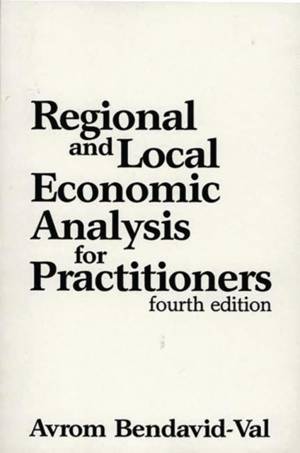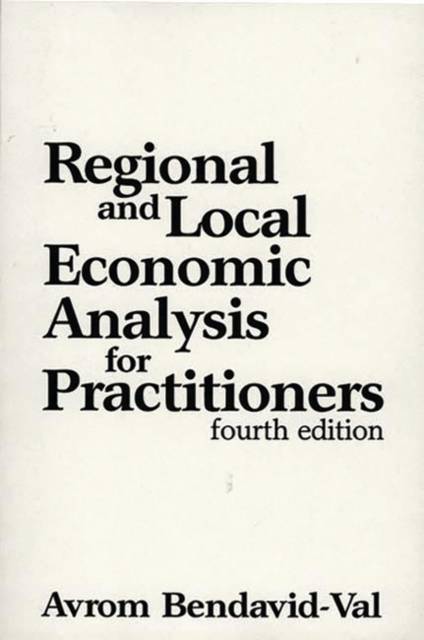
- Retrait gratuit dans votre magasin Club
- 7.000.000 titres dans notre catalogue
- Payer en toute sécurité
- Toujours un magasin près de chez vous
- Retrait gratuit dans votre magasin Club
- 7.000.0000 titres dans notre catalogue
- Payer en toute sécurité
- Toujours un magasin près de chez vous
Description
This is the fourth edition of Avrom Bendavid-Val's classic book that has become a standard for practitioners and students of public administration, urban and regional planning, and regional economics. Last revised in 1983, the work now provides a comprehensive practitioner-oriented study of the state of the art of regional and local economic development planning, with emphasis on specific project activity arrived at through an analysis of the regional economic context. The book is written in a straightforward style, free of technical terms and jargon, and is suitable for readers without an extensive background in economics, mathematics, or statistics. In addition, all analytical work is presented in a form that can be carried out without the use of vast databases or computers.
Bendavid-Val divides his work into five basic parts, each covering a different feature or method of analysis and planning. Part one introduces important aspects of the overall economic and development context within which the methods of regional analysis are used. Parts two, three, and four offer an introduction to common descriptive methods of analysis for use in regional planning, covering aggregate regional analysis, intraregional analysis, and project identification and evaluation. Finally, part five deals with approaches to regional development planning, providing help in selecting the methods that will be most useful in a given situation. A selected bibliography concludes the book. This work contains everything the practitioner or student needs in order to understand what regional and local economic development is all about, as well as to acquire the basic analytical skills for regional development planning, and to design and carry out a regional development planning process. Public and academic libraries will find this updated and expanded edition to be a significant addition to their collections, and for students and practitioners in regional planning and development, it will be an essential reference source.Spécifications
Parties prenantes
- Auteur(s) :
- Editeur:
Contenu
- Nombre de pages :
- 264
- Langue:
- Anglais
- Collection :
Caractéristiques
- EAN:
- 9780275935207
- Date de parution :
- 14-02-91
- Format:
- Livre relié
- Format numérique:
- Genaaid
- Dimensions :
- 156 mm x 234 mm
- Poids :
- 544 g

Les avis
Nous publions uniquement les avis qui respectent les conditions requises. Consultez nos conditions pour les avis.






